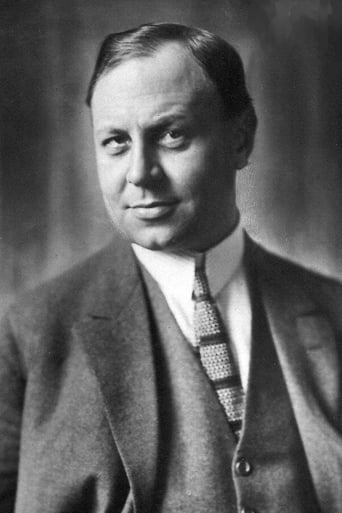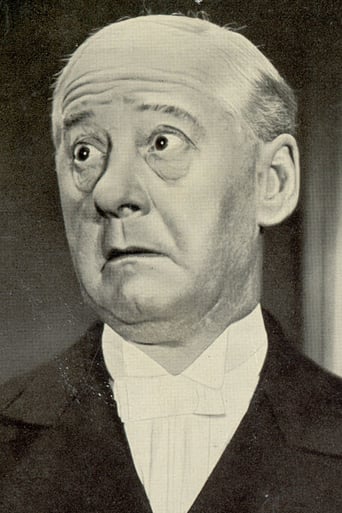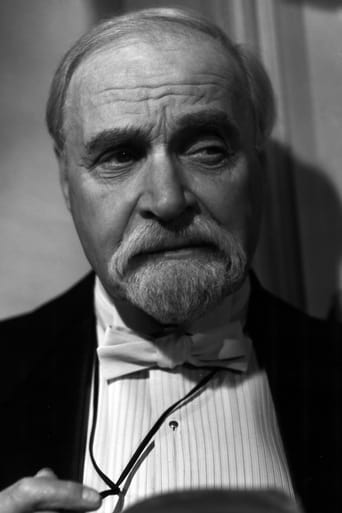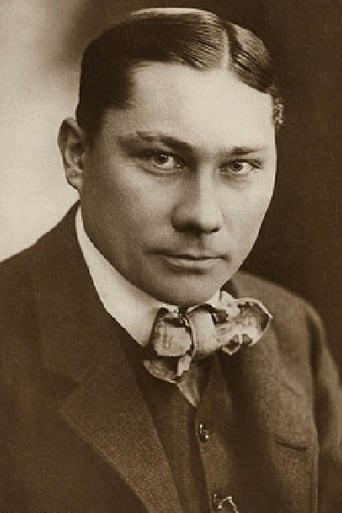Exoticalot
People are voting emotionally.
InformationRap
This is one of the few movies I've ever seen where the whole audience broke into spontaneous, loud applause a third of the way in.
Portia Hilton
Blistering performances.
Rexanne
It’s sentimental, ridiculously long and only occasionally funny
Horst in Translation (filmreviews@web.de)
"Das Weib des Pharao" or "The Loves of Pharaoh" is a German movie from 1922, so this one will soon have its 100th anniversary already, only slightly over five years to go. The director is early German filmmaking legend Ernst Lubitsch and he was around the age of 30 when he made this one, long before his Hollywood success. The writers are Norbert Falk and Lubitsch's longtime collaborator Hanns Kräly (later an Oscar winner even, something Lubitsch himself never achieved). But back to this one here. Given the year, it should not be a surprise to anybody that this 100-minute movie is a black-and-white silent film. And as with some other early films from Germany, it takes us into a world and culture that is fairly different compared to ours, especially compared to the fairly bleak years between World War I and the Nazis' rise to power here in Germany.Egypt is the center of the action here and like with many other early silent films, it is a mix of drama, costumes and romance as well. Horror is non-existent in here and neither is comedy. The cast includes a handful of fairly successful silent film actors from back then, not just Emil Jannings, but also Harry Liedtke and Paul Wegener for example and if you have an interest in German movies from that time, then you will see more than just one or two familiar faces. I myself have never been that big really on these very old silent films and sadly this one here cannot change my perception. As many other times, I also felt that it lacks intertitles on many occasions, so that the actual story is fairly difficult to follow at times and the plot not too easy to understand. Still, if you like the genre more than I do and maybe even care about films set in ancient Egypt, then this can be a pretty rewarding watch for your and I would not totally say that I don't recommend it to anybody. However, if this description does not fit you, then maybe it is best to stay away or check out comes other silent films from the 1920s first (more known ones like "Metropolis" or other Fritz Lang works) before deciding to give this one a go. I give it a thumbs-down.
MartinHafer
It is very difficult to adequately judge "The Loves of a Pharaoh" today. Most of this is because the film has been pieced together--much like a jigsaw puzzle that is still missing a few pieces. While the restored film is better than the insane re-creation of "London After Midnight" (where NONE of the original film exists and it is basically just a slide show with intertitle cards to fill in the gaps), it still isn't exactly complete. About a half dozen times during "The Loves of Pharaoh", scenes are missing and intertitle cards and stills are employed. Because of this, I am choosing not to give a numerical score for the film. The story is set in ancient Egypt and I'd sure love to know exactly where it was filmed. According to IMDb, it was filmed in Berlin--but what about the desert scenes with huge dunes--they sure don't look like Berlin!It begins with the king of Ethiopia pledging his daughter to the Pharaoh in order to cement an alliance. However, soon after, the Ethiopian princess' slave, Theonis, is spirited away by the rather dumb Ramphis. When Ramphis and Theonis are caught hiding in the Pharaoh's treasury, they are sentenced to death. But, inexplicably, the Pharaoh is so smitten with Theonis that he agrees to instead send Ramphis to work as a slave and marries Theonis. Considering he doesn't know this woman at all AND marrying her would bring on a war with Ethiopia, Pharaoh's behaviors seem irrational and silly. Just what happens next? See this epic silent and find out for yourself.While the acting and style of the film is rather dated (even compared to other silents), the film is still rather impressive. It features a huge cast, terrific sets and lots of nice costumes. So, while the story is very weak and overly melodramatic, the overall look of the film is nice. Director Ernst Lubitsch clearly created an spectacle here--albeit one with a plot that needed a re-write as much of it just made little sense. Worth seeing once and a chance to see Oscar-winning Emil Jannings in an early film role as the Pharaoh.
Christopher Craig
TCM presented a beautiful print of Ernst Lubitsch's Egyptian epic THE LOVES OF PHAROAH (1922). Released by Paramount in the US, the film was Lubitsch's last feature in his home country of Germany before setting up camp in Hollywood. (That's another story all together.) The "Lubitsch Touch" in his historically-based epics, such as CARMEN, MADAME DUBARRY, SUMURUN, or ANNA BOLEYN, is the director's ability to present us with the overwhelming sight of the plight of the crowd and then gradually direct our attention to a personal drama taking place within the epic sweep of time and destiny. (He does so more genuinely than DeMille, who seemed to have imitated this approach.) Then, of course,there are the sexual situations, the uncontrollable attractions, and the inevitable rejections that determine the fates of the characters, a theme continued into the director's sophisticated comedies and, later, witty musicals that followed this film. LOVES OF PHAROAH has stunning visual moments both large and small: the crowds working, revolting, being manipulated by rulers to the turning of Emil Jannings to a wall and dropping an outstretched hand, showing his reluctant realization of the futility of his affections. The film is deliberately paced but never draggy. Though there are moments of regret (the depiction of the Ethiopians is particularly stereotyped and inconsistent), this foray into Arabian exotica is a dramatic improvement over the stilted presentations seen in SUMURUN from a couple of years before. With THE LOVES OF PHAROAH, Lubitsch reaches the apex of his epic years (though THE PATRIOT may have reached greater heights, though we'll never know until a print is found).
wes-connors
As he is erecting a new treasury building in ancient Egypt, iron-fisted Pharaoh Emil Jannings (as Amenes) receives an offer of a pact with wild-haired rival Paul Wegener (as Samlak). The Ethiopian king brings along his desirable light-skinned daughter to offer as a wife for Mr. Jannings. Instead, Jannings is smitten with demure Greek slave girl Dagny Servaes (as Theonis), who has escaped from Mr. Wegener and his jealous daughter Lyda Salmonova (as Makeda). Later, Jannings catches Ms. Servaes smooching with stout Harry Liedtke (as Ramphis), the treasury building worker who snatched her off the shores of the river Nile...Jannings is so madly in love with Servaes, he spares Mr. Liedtke a death sentence in order to win Servaes' hand. You can safely predict Liedtke seeks out his lost lover. Meanwhile, Wegener is miffed at Jannings for rejecting his daughter and understandably irate when he discovers their missing Greek slave girl has taken her place in the palace. You can safely predict this means war...This silent epic led Ernst Lubitsch's entry into Hollywood, where his films, particularly those with Pola Negri, were wildly popular. The director had a stunningly successful career. Partly preserved silent films by renowned directors are often declared lost masterpieces. Like many, this film does not live up to those lofty description, but it is still an excellent spectacle. It's also incredibly restored. There are reportedly only about ten minutes missing, with stills and title cards filling in the blanks. The bulk of the film appears to have been digitally restored to pristine condition, by Thomas Bakels and his crew. Art/set direction is outstanding.******* Das Weib des Pharao (2/21/22) Ernst Lubitsch ~ Emil Jannings, Dagny Servaes, Harry Liedtke, Paul Wegener



